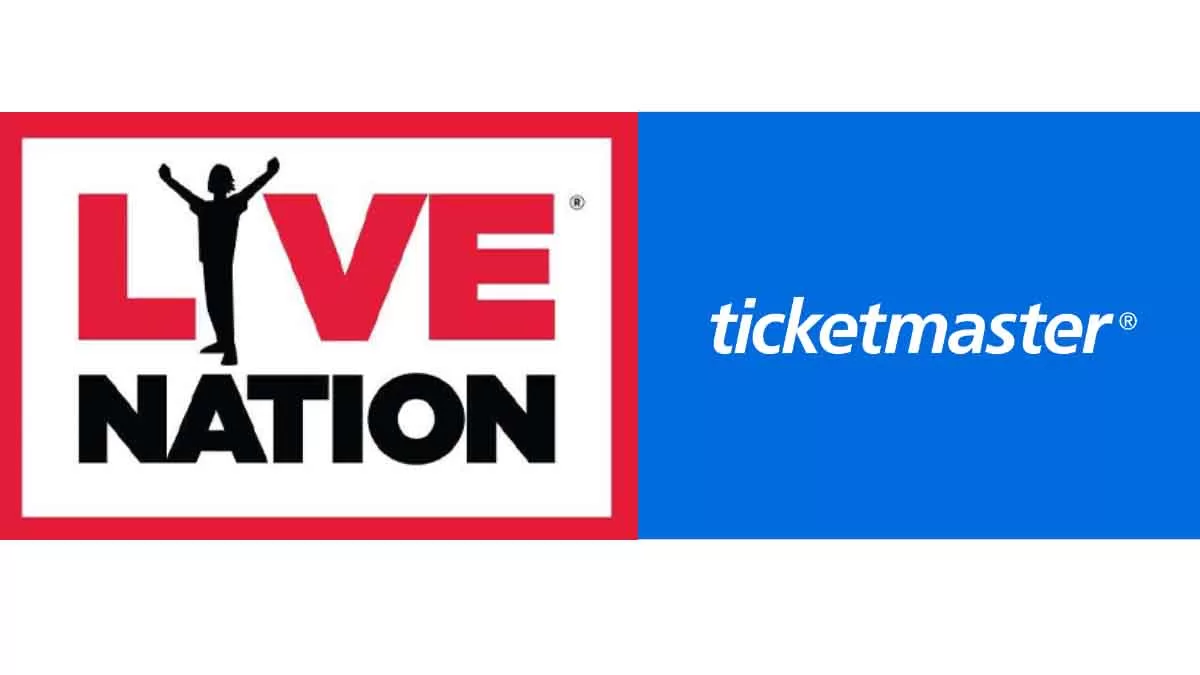Roughly a month after its launch, TicketDisaster.org has helped to generate about 25,000 emails to the U.S. Department of Justice (DOJ) urging the government body to block the planned merger of Ticketmaster and Live Nation, organizers of the anti-merger effort announced Tuesday.
In recent weeks, several consumer protection and advocacy groups have stepped up efforts to oppose the deal, which they believe would adversely affect the live entertainment and ticketing industries by giving the two marketplace giants too much control over the concert landscape. The two companies counter that the deal will help fix a broken live entertainment industry and create an “artist-driven” entity that is necessary to provide “a full-service connection between artists and fans.”
“This is one of the most-successful, grassroots campaigns we’ve ever done,” John Breyault of the National Consumers League (NCL) told TicketNews. “The number of emails is not insignificant, especially in the world of ticketing. This is a lot.”
The DOJ is expected to issue its decision on the merger some time in the next several days or weeks, but officials have not disclosed a date. Whether deal will be approved is unknown, but earlier in the month the shareholders of the two companies overwhelmingly ratified the deal, and media reports split on whether the two were about to receive the DOJ’s blessing.
“This unprecedented groundswell of consumer outrage should make it loud and clear to the DOJ that consumers nationwide want this merger to be blocked,” Sally Greenberg, Executive Director of the NCL, said in a statement. “Consumers can spot a raw deal when they see one, and this merger is exactly that – a combination of two market behemoths that would result in higher prices, more outrageous fees, and less choice.”
Earlier in the month, the UK Competition Commission reversed itself and approved the merger, stressing that it did not believe the deal would stifle market forces in that country. In the UK, the combined Ticketmaster and Live Nation would control less than 50 percent of the market, as opposed to in the U.S. where the two would control more than 80 percent.
Last week, the Computer & Communications Industry Association (CCIA), which counts Google, Oracle, Microsoft, Yahoo, Intuit and eBay among its members, also sent a separate letter opposing the merger to U.S. Assistant Attorney General Christine Varney. Varney heads up the DOJ’s antitrust division, which is overseeing the deal’s regulatory review.
The letter was signed by Edward Black, President and CEO of the CCIA, and reads as follows:
Dear Assistant Attorney General Varney:
I write to raise concerns regarding the proposed Ticketmaster-Live Nation transaction, which represents a significant accumulation of vertical and horizontal activities in markets relating to live entertainment. Among the many markets in which the combined Ticketmaster-Live Nation entity will have economic leverage are the primary and secondary markets for sales of live event tickets. While I recognize that the proposed consolidation raises valid questions regarding markets such as event promotion, performance venues, and artist management, these are beyond the scope of this letter.
As you know, consumers benefit greatly from open competition on the Internet, and depend upon it to access numerous primary and secondary markets for goods and services. Research suggests that 88% of American adults turned to the Internet to cope with and understand the current economic recession, such as looking for jobs, housing options, government benefits, and bargain-hunting. According to the National Economic Council, expert estimates indicate that the Internet adds $2 trillion to annual GDP, over $6,500 per person. The robust competition that characterizes e-commerce today provides consumers a variety of choices at reasonable prices. When competition is few mouse clicks away, both industry and consumers benefit. It is against this backdrop that the parties propose to further consolidate entertainment ticketing and marketing, at a time when an increasing share of primary and secondary market ticket purchases occurs online.
Current Market Conditions
The highly competitive nature of the Internet industry could not be further from the current state of live entertainment. In the past few years, Ticketmaster and Live Nation have collectively sold hundreds of millions of live event tickets, acquiring competitors and consolidating control. The highly consolidated nature of event ticketing at present is extraordinary. Even before the proposed transaction, the prevalence of exclusivity deals in the marketplace has dramatically limited consumer choice, and the post-merger entity would have even greater sway over the marketplace.
Risks to Further Consolidation of the Marketplace
Ticketmaster has been accused of leveraging its control over key talent by threatening to withhold top talent and artists from venues who do not use Ticketmaster’s primary ticketing services. If the merger between Live Nation and Ticketmaster were approved, the new company would have even more power to leverage its control over top talent. Unless Ticketmaster divests itself of Front Line and related business units, no primary ticketing company could compete with Ticketmaster because no other company could achieve a level playing field with respect to providing top talent. These divestitures would also promote competition in the secondary market.
Consolidation may also harm consumers by impeding the development of precompetitive phenomena in the secondary marketplace. Competition in secondary markets typically limits fraud and arbitrage by a primary market seller, particularly where, as here, there is little competition in the primary market. Unfortunately, the proposed transaction will significantly lower the chances that pro-competitive, open standards-based e-commerce platforms will be created to facilitate a competitive online marketplace for tickets in both the primary and secondary markets.
Through so-called “paperless ticketing”, the combined entity may attempt to transition live performances from the current model to a model that more closely resembles airline ticketing – a dubious value prospect for any consumer familiar with modern air travel. The putative benefits of paperless ticketing do not necessarily outweigh the consumer risks resulting from the same. Paperless ticketing should not necessarily be assumed to increase consumer welfare absent further analysis. We urge the Department to be wary of any supposed “efficiency”-enhancing features of a product that would also perpetuate closed systems.
Any primary ticket distributor using technology, whether “closed-loop paperless ticketing”, mobile, or otherwise, should not be permitted to block the free and open transferability of tickets on any secondary ticketing marketplace. Through vertical integration, a new combined entity would have additional market power to implement so-called “closed loop paperless ticketing” or other closed-loop systems that could force consumers to use the mergedentity’s platform for the transfer and/or resale of event tickets, potentially eliminating competition in the secondary market. Ticketmaster’s integration of the TicketExchange service suggests an apparent intent to impose price floors on Ticketmaster-controlled, integrated secondary marketplaces. If it were to force such price floors on consumers by mandating the use Ticketmaster’s closed-loop paperless ticketing platform for reselling tickets, the combined entity could artificially raise prices.
Responses to the Proposed Merger
In light of these substantial risks to consumer welfare, I urge the Department not to approve this transaction absent appropriate conditions. Such conditions should, at a minimum:
-Promote competition in the primary market for event ticketing by requiring the divestiture of Front Line and related businesses.
-Prohibit exclusionary agreements that limit competition among primary market ticket vendors or secondary market platforms.
-Promote competition in the secondary market for event ticketing by requiring paperless ticketing systems to interoperate with all secondary market providers on a reasonable and nondiscriminatory basis.
-Generally prohibit the limitation of consumers’ resale rights in their tickets, including prohibiting price floors and restrictions on what online or offline platforms consumers may use to re-sell tickets.
In the absence of these remedies, the proposed transaction will pose an undue threat to consumers in primary and secondary markets for live event tickets. If such conditions will not be accepted, or cannot be effectively implemented, I urge that the Department oppose the transaction.
Thank you for your consideration of these comments.




